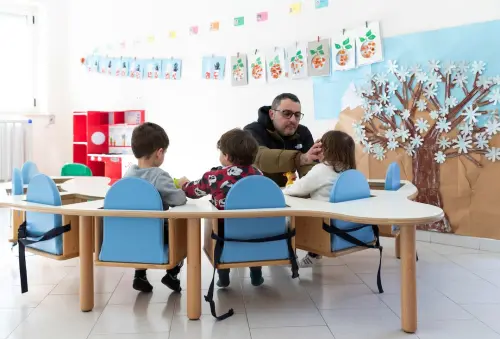Italian Prime Minister Giorgia Meloni faced a significant challenge upon taking office in 2022 - Italy's concerns over a low birth rate and low female employment levels. To tackle these issues and stimulate economic growth, Meloni proposed a birth support initiative and committed to expanding affordable childcare services. However, the plan hit obstacles due to the bureaucratic hurdles of Italian red tape and administrative delays.
Funding for these initiatives, totaling 194.4 billion euros ($203 billion) from the EU, aimed to aid Italy's post-COVID recovery. The slow utilization of these funds contributed to Italy's modest 0.5% economic growth in the previous year, well below the initial forecast. Economists stress the need for Italy to address its low birth rate to avert further economic decline.
Despite the groundwork laid by the former government, Meloni has reduced the target number of childcare places and funding. The urgency to utilize the EU funds or risk losing them has led to negotiations for a revised spending plan. Concerns loom about the ability of local authorities to meet strict deadlines amidst the complex application and disbursement processes.
The pressing need to enhance childcare services is underscored by Italy's demographic challenges and low female employment rate, the lowest in the EU. Improving access to nursery schools is seen as vital to boosting women's workforce participation and overall economic growth, meeting the needs of an aging population.
